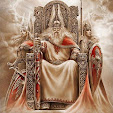The idea of taking a walk in the countryside for pleasure developed in the 18th-century, and arose because of changing attitudes to the landscape and nature, associated with the Romantic movement. In the earlier times walking generally indicated poverty and was also associated with vagrancy.
Thomas West, an English clergyman, popularized the idea of walking for pleasure in his guide to the Lake District of 1778. In the introduction he wrote that he aimed to encourage the taste of visiting the lakes by furnishing the traveller with a Guide; and for that purpose, the writer has here collected and laid before him, all the select stations and points of view, noticed by those authors who have last made the tour of the lakes, verified by his own repeated observations.
To this end he included various "stations" or viewpoints around the lakes, from which tourists would be encouraged to enjoy the views in terms of their aesthetic qualities. Published in 1778 the book was a major success. Another famous early exponent of walking for pleasure, was the English poet William Wordsworth.
In 1790 he embarked on an extended tour of France. Switzerland, and Germany, a journey subsequently recorded in his long autobiographical poem The Prelude (1850). His famous poem "Tintern Abbey" was inspired by a visit to the Wye Valley made during a walking tour of Wales in 1798 with his sister Dorothy Wordsworth.
Wordsworth's friend Coleridge was another keen walker and in the autumn of 1799, he and Wordsworth undertook a three weeks tour of the Lake District. John Keats, who belonged to the next generation of Romantic poets began, in June 1818, a walking tour of Scotland, Ireland, and the Lake District with his friend Charles Armitage Brown.
More and more people undertook walking tours through the 19th-century, of which the most famous is probably Robert Louis Stevenson's journey through the Cévennes in France with a donkey, recorded in this "Travels with a Donkey" (1879). Stevenson also published in 1876 his famous essay "Walking Tours". The subgenre of travel writing produced many classics in the subsequent 20th-century.









































